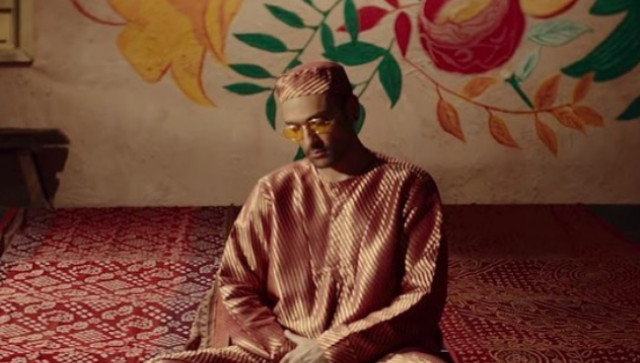Ali Sethi’s music fills me with longing for something that may or may not exist. Longing for the idea of celebrating free will, unveiled thoughts and everything fluid— unapologetically. In Sethi’s world, borders are musically made of mirrors. These borders do not restrict themselves to geography…they are borders within bodies, gender, religion, and politics. The celebration of fluidity can be seen in his popular number Pasoori which is breaking records and bringing people together across borders. Ali Sethi was born in Lahore in 1984 to well-known journalists and publishers Najam Sethi and Jugnu Mohsin. Sethi went on to graduate from Harvard in South Asian studies. He has also written a novel named ‘The Wish Maker’ that talks about a man who has returned from overseas to his native land. The novel was published in 2009. Ali Sethi rose to fame through the popular Farida Khanum ghazal ‘Dil Jalane ki baat karte ho’ in Mira Nair’s Reluctant Fundamentalist. In the song, Ali is seen complaining to his lover about setting his heart on fire and also talking about an abode, giving the listener a sense of holding contrasting thoughts simultaneously. Sethi has time and again come up with renditions of popular ghazals like ‘mere humsafar mere humnava’, ‘ye mera deewanapan hai’, ‘ranjish hi sahi’ giving his audience the timelessness of music and bringing to life Salvador Dali’s masterpiece ‘Persistence of memory’ in the South Asian context of longing for a lover and an identity simultaneously. The comparisons become so close that they almost blend into each other becoming a single entity. This blending of identities can very well be seen in the latest hit ‘Pasoori’ where he tells his lover that he would set every ‘majboori’ on fire and drink in a flurry even if in the name of love she has poison to offer. Also read: The Sound of Pasoori: Why Ali Sethi and Shae Gill’s magical hit defies political turmoil and toxic social media The traces of politics of love, metaphysics and nationalism intertwining can be very clearly seen, exactly how they were evident in Faiz’s revolutionary poetry. Faiz unapologetically told his lover ‘Aur bhi dukh hai zamaane mai mohobbat ke siwa, raahatein aur bhi hai wasl ki raahat ke siwa’, whereas Sethi transcending the idea of space and time wants to transport his lover to someplace ‘hai jahan silsilay’(roughly translating to where the wind blows). He tells his lover which can also have an interpretation of (Ishq hakeeki)—metaphysical love to make him, decorate him and keep him. (Bana de, sajaa de, panaah de humein). Maybe Mr. Bob Dylan would have understood Sethi’s prayer better because the answer my friend is blowing in the wind and that’s where Ali visualises himself and his lover–somewhere in the wind.. weightless and nameless maybe. Read all the Latest News , Trending News , Cricket News , Bollywood News , India News and Entertainment News here. Follow us on Facebook, Twitter and Instagram.
Ali Sethi in his latest song ‘Pasoori’ tells his lover that he would set every ‘majboori’ on fire and drink in a flurry even if in the name of love, she has poison to offer. Here are the views of a die-hard fan of Ali Sethi on Pasoori
Advertisement
End of Article


)
)
)
)
)
)
)
)
)



